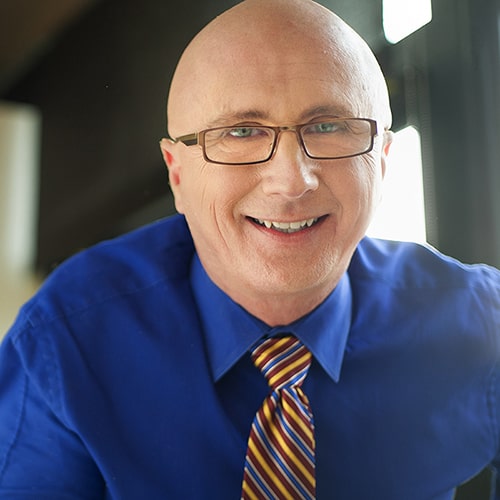If you go to Amazon.com and type in “Relationships” in the book category, you’ll find over a thousand books on the topic. Surprisingly, I couldn’t find one written by a lawyer.
Lawyers are hired to resolve conflicts and disagreements. Clients come to us to deal with problems through a legal process that generally is perceived as a zero sum game — where one side wins and the other loses. We’re the advocates, the warriors. We’re trained to engage in conflict for our clients, and win — a skill that’s certainly not the foundation of a healthy relationship.
What if I were to tell you that lawyers actually have a blueprint to creating not just good relationships, but thriving ones?
(Let me know when you’ve stopped laughing)
In the movie “National Treasure,” hidden from the naked eye, are clues to finding a treasure, written on the back of the Declaration of Independence. No one knows the clues are there. And, it’s not until the cache is found that anyone believes there is a hidden treasure.
Just like that movie, hidden inside our professional code of conduct is a virtually undiscovered roadmap to relationships.
It all begins with the fiduciary relationship. That’s the highest standard of care (conduct) imposed by law. The individual with the fiduciary duty is often referred to as the principal, guardian, or broker. The person they’re charged with protecting are often referred to as ward, client, trustee, or beneficiary.
A fiduciary relationship means the principal’s own interest must not be taken into consideration when giving advice or acting on behalf of the beneficiary.
No self-dealing allowed. It’s about trust and faith that the individual acting on the other person’s behalf will serve the highest interest of the one they’ve been charged to protect or advise.
There are many legal fiduciary relationships — such as guardians appointed by the court to watch over a minor or someone who’s legally recognized as not being competent. When you work with a broker in the buying or selling of property, that’s also a fiduciary relationship. Those brokers are ‘legally loyal’ — they owe a fiduciary relationship to — the buyer or the seller depending on who they represent.
As strange as it sounds, as a lawyer, I owe a higher legal duty to my clients than to my wife, children, or friends. The law requires that there be no self-dealing when advising my clients. No such legal requirement exists in a marriage — that is a personal decision we choose to take on — or not.
Can you imagine how our world would be different if each of us took on the heart of the fiduciary relationship — no self-dealing, looking at what’s in the best interest of the other person — when we interact with everyone?
It’s not hard to do and it’s an incredibly rewarding way of seeing relationships. It requires a simple shift in the purpose of our interaction with the other person.
For example, one goal I have in my relationship with my wife is to look for what I can do, or say, to help her excel in what’s important to her.
She’s passionate about painting. I’ve learned over the years what distracts her from creating artwork. One of my stated goals is to do what’s within my control to minimize or eliminate what gets in the way of her painting. By making what’s important to her, meaningful to me, I let her know (by my actions) how I value her.
This “no self dealing” approach is not about helping someone else at my expense- rather it’s both a philosophical, and practical approach, to look for new ways to both see and support those who are important to me.
Words combined with action.
Saying “I support you” is not the same as empowering those words with action. When I show my support with action, it takes the relationship to a different level. It’s an expression of how important she is to me by helping her live more fully who she is.
Three Essential Elements to Any Successful Relationship
This objective framework helps us understand when a relationship is failing or not living up to its potential. When that happens, one, or more, of the following elements are not being met:
- Full and Frank Disclosure The obligation to let our clients know all the important facts. We’re not allowed to hold information back because our client won’t like it.
- Duty of Care This is the action we take to make sure we are actually doing our job. We are not a storage unit where clients come to park their problems and have nothing be done.
- Duty of Loyalty No conflict of interest with a client (not even the appearance) — no divided loyalty.
Those are the three fiduciary duties that an attorney owes their client. They are also the triad, the three sides of a code of conduct, if you will, to relationship-building of any sort.
When attorneys are reprimanded, suspended or lose their licenses, invariably it’s over a breach of the fiduciary relationship with their clients.
In the monthly Oregon State Bar magazine, there is section that covers attorneys who are reprimanded, suspended, or lose their license. Invariably, it comes down to the lawyer breaking the fiduciary relationship with their client. They failed their duty of care in some way; either by ignoring a client’s case or not paying attention to a conflict of interest with another client. They breached their duty of loyalty.
It’s often the same with couples when a relationship fails or doesn’t live up to its potential. One or both partners have breached their duty of loyalty to each other.
The next post will look more in depth at what each of the duties mean, and how you can use them to diagnose what’s failing in a relationship so you can do what’s within your power to take it from surviving to thriving.
Which connections in life do you want to infuse with the heart of a fiduciary relationship?






A wonderful reminder of fundamental legal principles.
Great article, Jim!
My favorite part was the playful and humorous beginning (“Let me know when you’ve stopped laughing!”), the spot-on observation about how you owe a higher legal obligation to your clients than to your wife, as well as the part about why attorneys are reprimanded, suspended or lose their licenses.
Great stuff Jim… we certainly need to be on guard not to (small-)self-deal, but we also need to contemplate whole-heartedly dealing our large Self into all our relating – body, mind, heart and soul – as a whole person, committed to ever-more-whole making wherever the opportunity arises. You are taking us into the realm of ‘deep’ relating…. mmmmmmm.